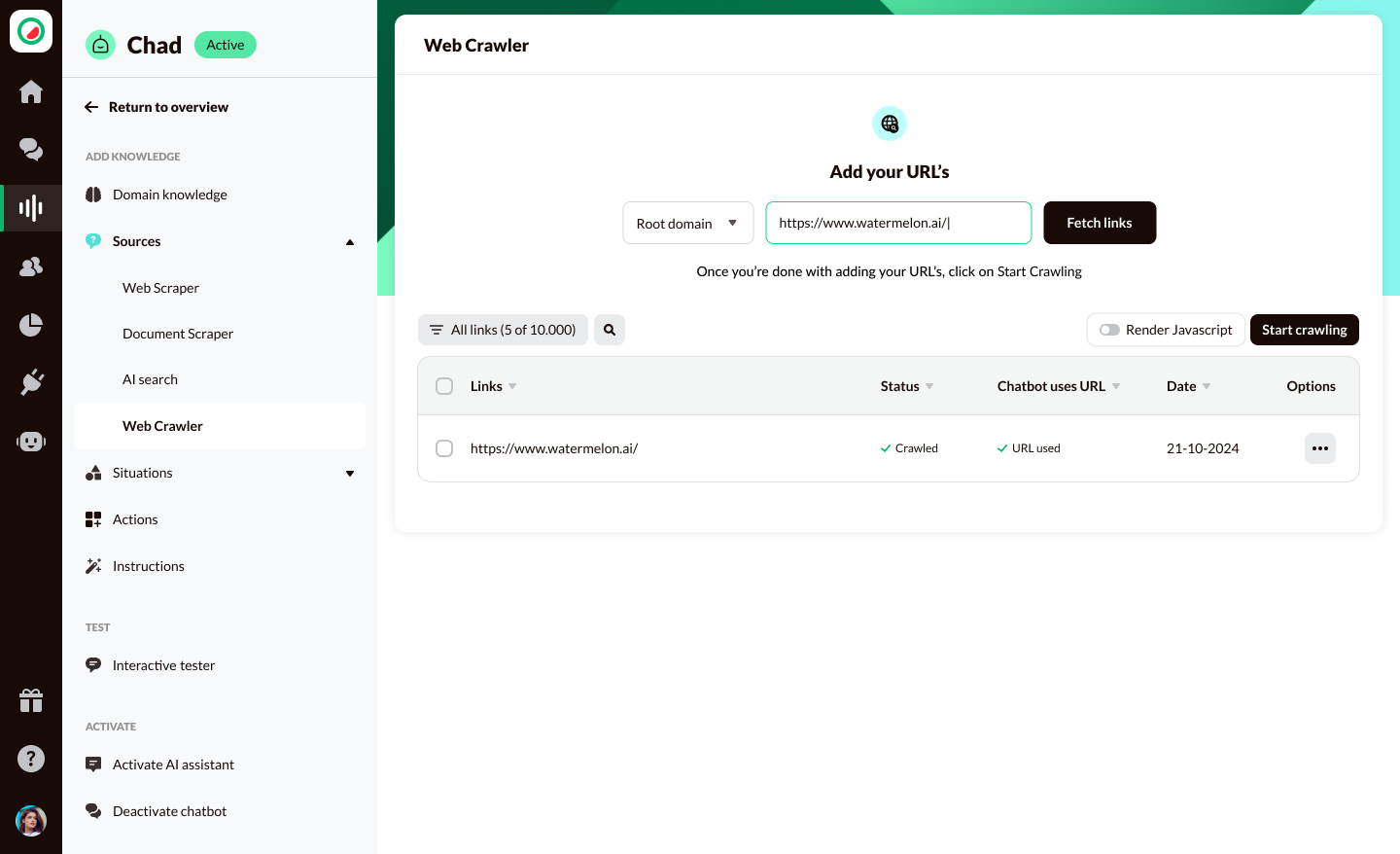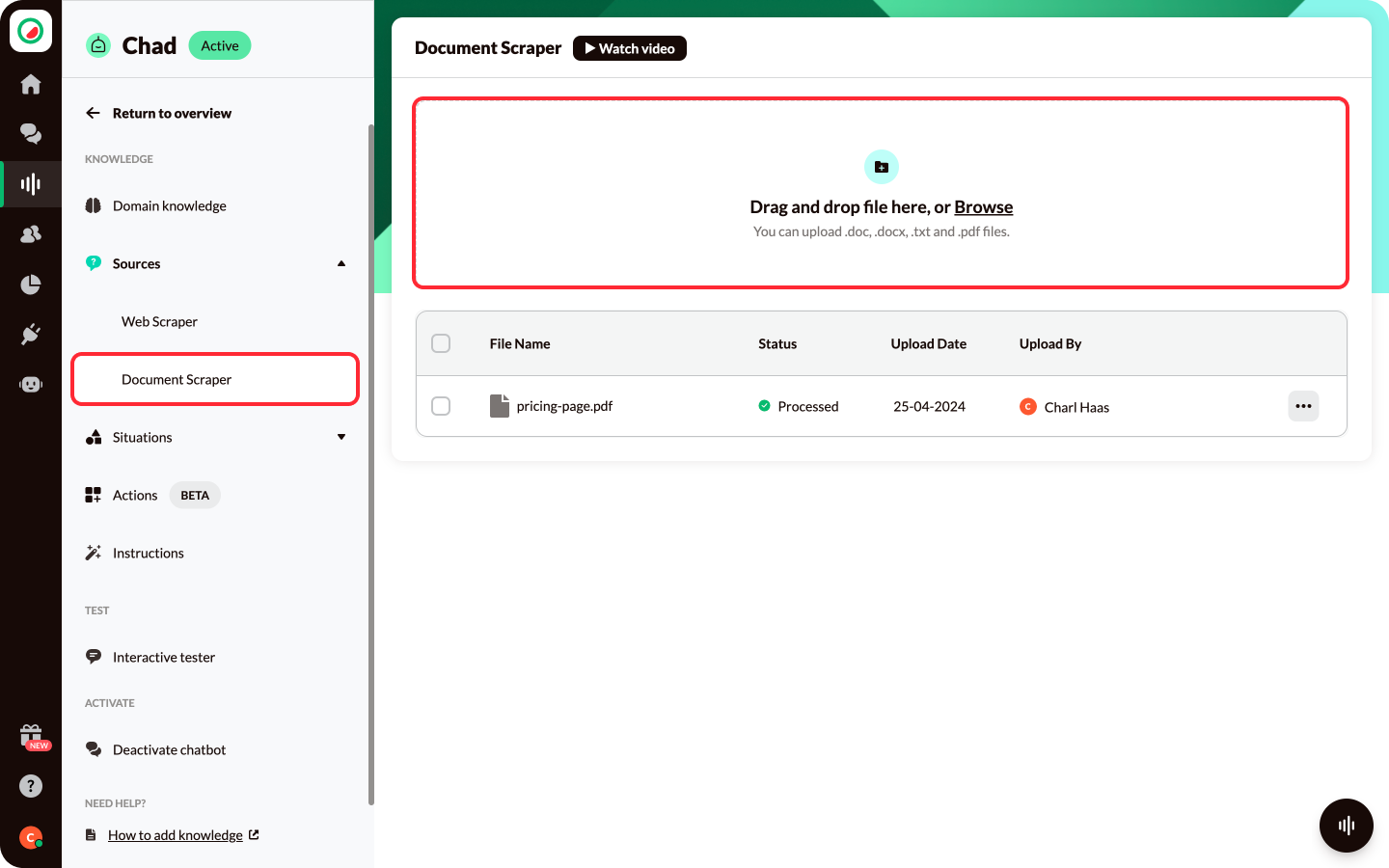Watermelon guide
Start here
Learn all about building AI Agents and become an AI expert.
Begin here
Adding Sources
Adding knowledge through sources
By using Sources, you can quickly and easily add knowledge from websites and documents. This saves time and effort from manually entering all the information and significantly simplifies the process of building the AI Agent! This enriches the knowledge of the AI Agent, allowing it to answer questions with information from the added websites and documents.
The web crawler
In the Web Crawler, you can easily fetch all URLs from your website, which you can then crawl to add the content to your AI Agent’s Domain Knowledge. For each retrieved URL, you can decide whether or not to crawl the information on the site.
If you click ‘Crawl’ again (for example, after something on the website has been updated), this process will repeat, keeping your AI Agent's knowledge up-to-date.
When crawling your website, text is loaded into Pulse. Images, videos, and files on your website are not included
If your website has a sitemap, we recommend adding it as a URL in the Web Crawler. A sitemap provides an overview of all pages and their connections, helping the AI Agent better understand the website’s structure and generate more accurate responses.

The Document Scraper
With the Document Scraper, you can easily add documents to the knowledge of your AI Agent. By scraping a document, all text is extracted and included in the AI Agent. Files you can add are .doc, .docx, .txt, and .pdf. If you want to add an Excel file, you can convert it to a .pdf and add it that way. The Document Scraper can read tables well.
You can add up to 250 documents to the Document Scraper, such as manuals, email templates, and terms and conditions.

Contradictory information
If the knowledge you add via the web crawler and Document Scraper contradicts manually added instructions, this can result in conflicting answers from the AI Agent. Therefore, ensure that the added information is consistent.